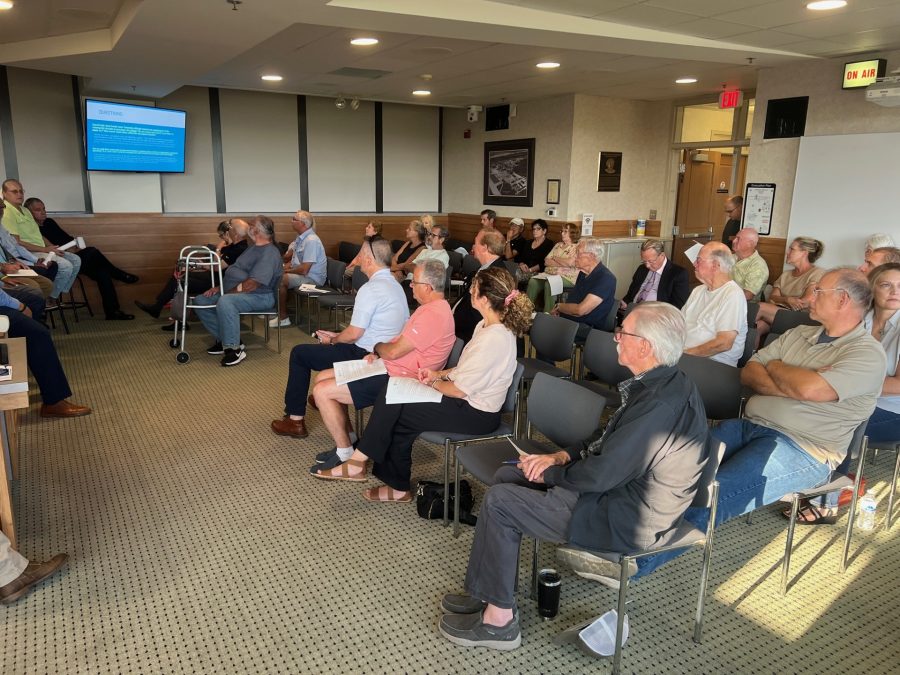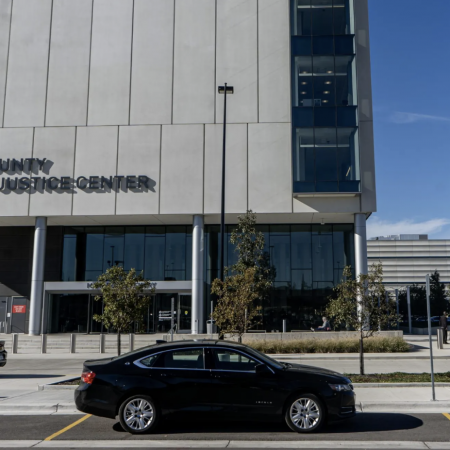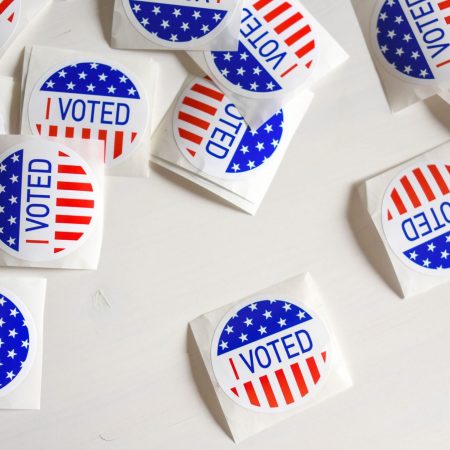Grosse Ile voters could authorize a plan to buy one of the island’s two bridges
Voters on Grosse Ile will decide whether to let the local government buy one of the two bridges connecting the island to other communities Downriver.
The gateways to Downriver
Nestled in the Detroit River between the United States and Canada, Grosse Ile is home to about 10,000 people. It has a grocery store, three golf courses, and an airport that was once a U.S. Naval Air Station. For those who don’t own a boat, a plane, or a helicopter, the only way on or off the island is by crossing the bridges over the Trenton Channel.

Most islanders use the Parkway Bridge — or the “free bridge” as they call it — near the south end of Grosse Ile. Wayne County, which owns and operates this span, estimates about 16,0000 vehicles cross it every day. It’s the older of the two bridges. Island historian Tony Krukowski says it predates the automobile.
“The free bridge was part of a rail line that was built in 1873 to carry cargo to and from Canada,” Krukowksi said. “It was built by the Canadian Southern Railroad. The Railroad stopped running in 1924 and the county converted the railroad trestle to a vehicle bridge in 1931.”
Competition arises
But the free bridge was not the first to allow automobiles to cross. In 1912, a man named Edward Voigt started building his own bridge. Krukowski says the German immigrant owned a farm at the north end of the island.
“He raised Percheron horses on his farm, and he also owned a brewery in Detroit,” Krukowski said. “So, he used the bridge to transport his Percheron horses over to Detroit to pull his beer wagons.”
Horses gave way to automobiles, and Voigt opened his bridge to vehicle traffic in 1913. He charged car owners a fee to cross. Today, the toll is $3.50.

The Voigt family still owns the toll bridge, but not for long. Edward Voigt’s great-grandson, Paul Smoke, is putting it up for sale, and giving the island’s government first dibs.
How would local leaders pay for it?
Grosse Ile Township trustees voted unanimously to put that question to the voters in the form of a new property tax. Township Supervisor Jim Budny says the 1.67 mill levy would raise $59 million to buy the bridge and upgrade it.
“The first step would be passing the proposal in November,” Budny said, “and then we can get into all the other stuff that we have to do, selling the bonds, getting the designs, getting the work scheduled.”
That work includes increasing the toll bridge’s weight limit of 7.5 tons per vehicle, which only allows commuters to cross. Heavier vehicles use the Parkway Bridge to deliver goods and services such as fuel and groceries. But the free bridge is in bad shape. Wayne County plans to close it twice in 2025 to repair damaged piers and pressure plates. Those closures could last weeks or months. Budny says that could put Grosse Ile in a bind.
“We couldn’t get any food to the island,” Budny said. “We couldn’t get any gas to the island, we couldn’t get any big trucks onto the island, we couldn’t get our waste OFF the island. We could get our emergency vehicles off the island. We couldn’t get emergency vehicles onto the island.”

Budny says the toll bridge needs work, too. But because it’s privately owned, he can’t force the current owners — or another buyer — to improve it. He says if the township owned the bridge, it could decide what kind of vehicles can cross and how much they pay.
Island residents consider their options
That appeals to island resident Fay Givens, who expressed her support at a public meeting in September.
“We’d be able to control the tolls coming off and on that bridge,” Givens said. “We would have, in cases of an emergency, we would be able to act quickly. We would not have to go through an owner that doesn’t live on the island.”
Givens says she’ll vote yes on the millage. Another resident, Brian Kostielny, isn’t sold yet. At the same meeting, he said he’d likely vote no unless he gets more information.
“I’m just looking to go ahead and get a breakdown of how much revenue the bridge makes, you know, what the cost of repair is with the sale of the bridge,” Kostielny said. “I don’t even know how they valued the bridge. I mean it’s not like you can Zillow the value of a bridge.”
That information is subject to a non-disclosure agreement between the township and the toll bridge’s owners, who declined comment for this report. If voters reject the millage, Budny says they probably won’t get another chance.
“If it doesn’t pass, then the seller will go to the open market and sell it to some other private individual,” he said. “There aren’t any municipalities that want it that I’m aware of around here. So, it’ll go to another private individual who would probably keep it the way it is.”
Voting ends Nov. 5
With absentee voting already underway, Grosse Ile residents will decide whether the millage is a bridge to the future or a bridge too far.
For more information about the Grosse Ile Parkway Bridge Projects, visit waynecounty.com.
Trusted, accurate, up-to-date.
WDET strives to make our journalism accessible to everyone. As a public media institution, we maintain our journalistic integrity through independent support from readers like you. If you value WDET as your source of news, music and conversation, please make a gift today.
The post Grosse Ile voters could authorize a plan to buy one of the island’s two bridges appeared first on WDET 101.9 FM.


